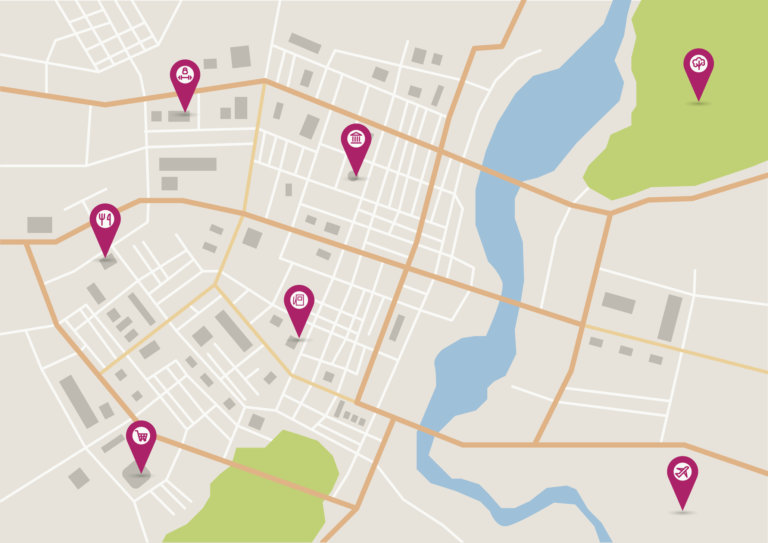Geofencing is a widely misunderstood yet powerful tool for legal marketing. It’s been gaining traction in recent years, and many firms have questions about how to successfully implement geofencing. This is a primer on geofencing for law firms—including what to avoid and how to get started.
In this article, we explain how geofencing works, the major benefits of geofencing, and our top tips for lawyers and law firms who want to get started with geofencing.
What is geofencing and how does it work?
Geofencing is the process of setting up a virtual perimeter on a specific physical location. In this instance, geofencing refers to an advertising strategy that permits ads to be served to individuals who enter into a geofenced area and who fit the target audience or keyword. Geofencing can use GPS, Bluetooth, or RFID to find the correct audience.
A geofence is a little like the wireless fence a homeowner might use to keep a dog in the yard. It’s about creating a boundary. When the boundary is crossed, the geofence is triggered and a preset action occurs.
This strategy is commonly utilized by brick-and-mortar retailers to serve up ads in malls. For instance, you may have noticed an in-app notice that one of your favorite stores is having a BOGO sale on denim. While it may be a coincidence, it’s more likely smart geofencing. You were targeted because you were inside the virtual perimeters set around the physical location of the mall.
Geofencing is beneficial because it allows you to get in front of the right people at the right time. Plus, it can be more cost-effective than other forms of marketing because it is so hyper-focused. Most social media platforms allow you to geofence at no extra fee, and there are other dedicated platforms that provide this service as well.
Is geofencing right for lawyers?
The short answer is it may be, depending on who you’re looking to reach. Let’s consider a use case for geofencing in legal marketing.
If you are a lemon law attorney helping clients who purchased Toyota Camrys between 2018-2022, you might decide to place a virtual perimeter around five local dealerships with service departments. You know that these cars require frequent repairs and frustrated consumers will likely be dropping off (and waiting for) their cars in these locations.
Overall, geofencing can be an affordable and effective marketing strategy for a law firm. It really depends on your area of law and the type of prospective clients you wish to reach.
How to succeed with geofencing in legal marketing
Whether you’re feeling eager or overwhelmed, it is a good idea to consult with an agency if you plan to roll out a geofencing campaign. Here are three tips to help you succeed:
1. Do not fence an overly large area. Specificity is most effective with geofencing, so a huge geographical area will actually be counterproductive.
2. Create compelling collateral and a strong call to action. Think carefully about where an individual is when writing copy for them. For example, someone sitting in the dealership for the fourth time in a month may not even realize they may have rights to compensation. Be clear and concise.
3. Treat geofencing as part of a holistic marketing strategy. As with any digital marketing initiative, utilize geofencing as merely one tactic in a complementary suite of marketing tools. Before launching a geofencing campaign, evaluate the entire attorney selection process and give thought to the entire process. If your geofencing ad is effective in getting someone to your website, what will they find there? What is the CTA? What is the value you deliver? Are you educating them?
Review and next steps
In the real world and in the digital world, clear communication matters. Geofencing can help your firm connect with the right people, but you must have the website and the infrastructure in place to capitalize on the opportunity that geofencing provides.
Omnizant can advise your firm on the right approach for geofencing—and we can help you build the necessary digital presence to benefit from this potent marketing tool.

